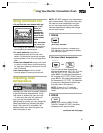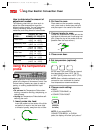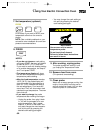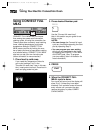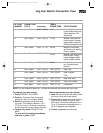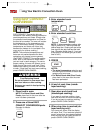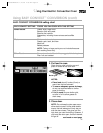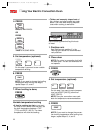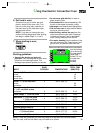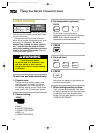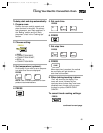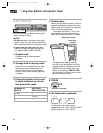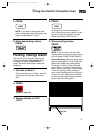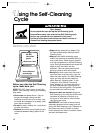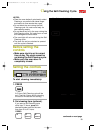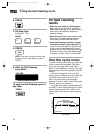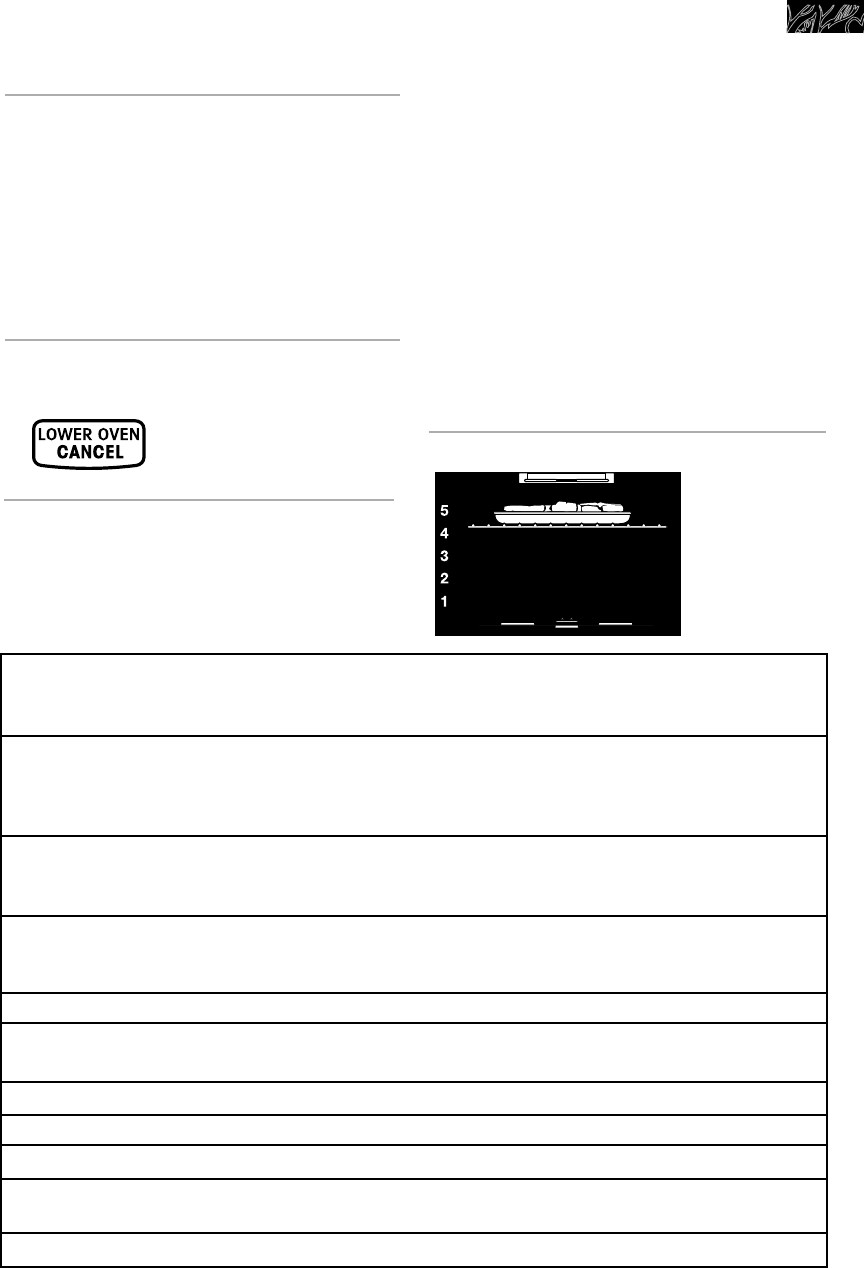
• Do not cover grid with foil, in order to
allow juices to drain.
• Trim excess fat to reduce spattering. Slit
the fat on the edges to prevent curling.
• Use tongs to turn meat to avoid losing juices.
• Pull out oven rack to stop position before
turning or removing food.
• After broiling, remove the pan from the
oven when removing the food. Drippings
will bake on the pan if left in the heated
oven, making cleaning more difficult.
• For easier cleaning, line the bottom of the
pan with aluminum foil. Clean the pan and
grid as soon as possible after each use.
Recommended rack positions are numbered
from the bottom
(1) to the top (5).
For best results,
place food 3
inches (7.5 cm)
or more from
the broil
element.
6. Put food in oven.
Place food on grid in broiler pan and
place in center of the oven rack. Turn
the pan so the long side is parallel to
the oven door for the most even heat
and the best airflow.
NOTE: If you want to change the con-
vection broiling temperature after broiling
has begun, repeat Steps 3, 4, and 5.
7. When broiling is over,
PRESS
Broiling guidelines
• Use only the broiler pan and grid
provided. They are designed to drain extra
juices from the cooking surface. This
drainage helps prevent spatter and smoke.
Using Your Electric Convection Oven
23
APPROXIMATE
TOTAL TIME
(MINUTES)
16
21
25
23
28
8-12
18-20
10-12
20-22
25-28
8
32
20
20-22
10-12
TEMPERATURE
500°F (260° C)
500°F (260° C)
500°F (260° C)
400°F (204° C)
500°F (260° C)
500°F (260° C)
450°F (232° C)
500°F (260° C)
500°F (260° C)
350°F (177° C)
350°F (177° C)
350°F (177° C)
RACK
POSITION
4
4
5
4
4
4
4
4
3
3
3
4
MEAT
Steak, 1" (2.54 cm) thick
• rare
• medium
• well-done
Steak, 1
1
⁄2" (3.815 cm) thick
• rare
• medium
Ground meat patties or steaks,
1
⁄2" (1.27 cm) thick or less
• medium
Lamb chops, 1" (2.54 cm) thick
Ham slice,
1
⁄2" (1.27 cm) thick
1" (2.54 cm) thick
Pork chops, 1" (2.54 cm) thick
Frankfurters
Chicken pieces, bone in
Fish,
1
⁄2" (1.27 cm) thick
1" (2.54 cm) thick
Calves liver,
1
⁄2" (1.27 cm) thick
NOTE: Times are guidelines only and may need to be adjusted for individual tastes.
Very thin cuts, such as fish fillets, may not need to be turned.
4452300Bv09c40 1/21/00 4:36 PM Page 23



